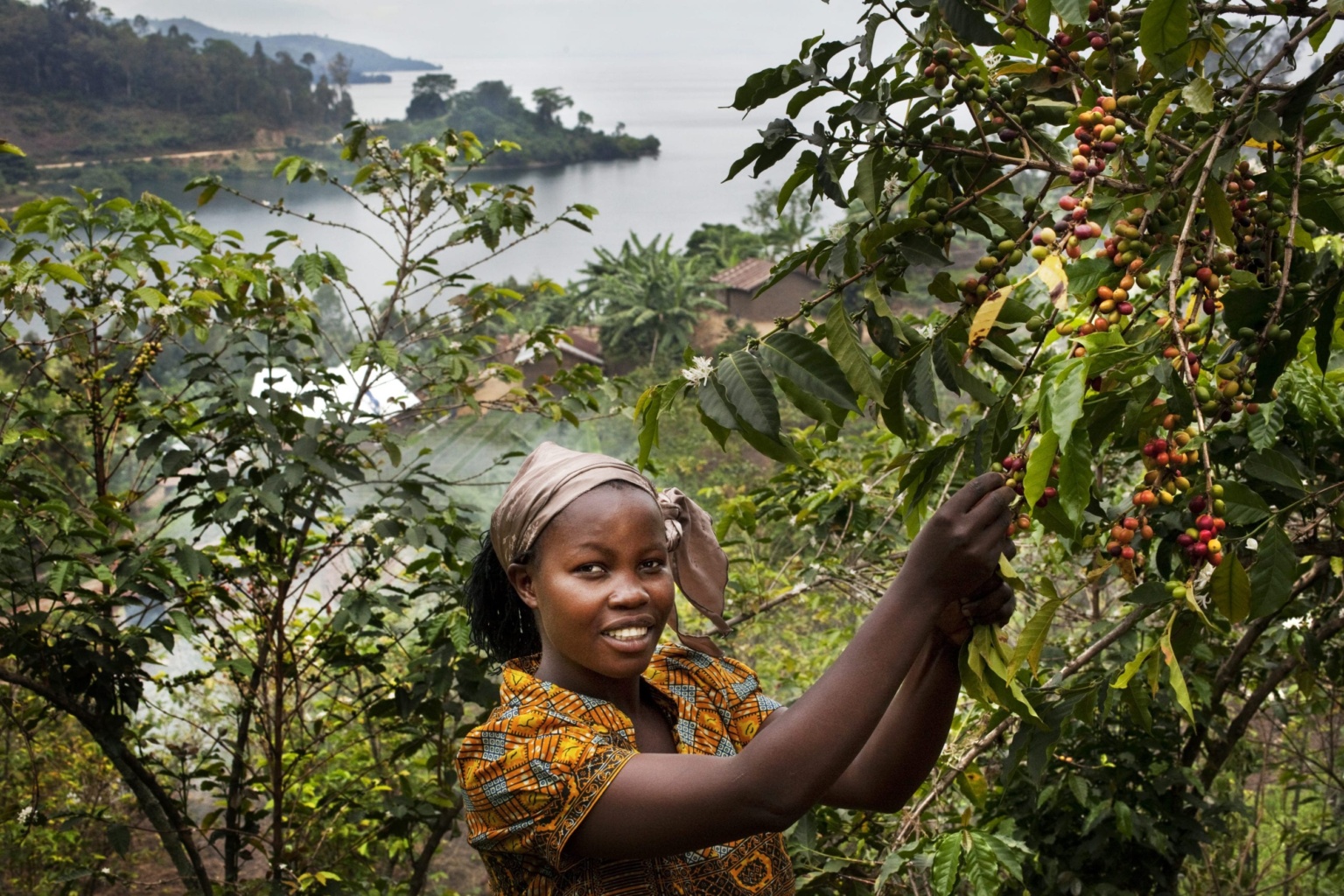
Muungano
- coffee cooperative from South Kivu in the Democratic Republic of Congo
- founded in 2009, Oxfam partner since 2011
- sells its certified-organic arabica coffee of exceptional quality directly to Oxfam
Kivu: potential for top-shelf coffee
The Kivu region of Congo, near to the border with Rwanda is not known for its peace and quiet. Rebel groups have been fighting here for years over valuable minerals and raw materials. But the direct sale of fair-trade coffee could help to drive socio-economic development in the troubled region.
The Kivu region’s soil, climate and altitude (1,400 to 1,800 metres above sea level) provide the perfect conditions for growing high-quality arabica coffee. A product highly sought-after overseas. What’s more, ‘Kivu’ is an interesting coffee origin for coffee connoisseurs.
Certified: organic, fair-trade coffee
The Muungano cooperative started out in 2009 with a few hundred members. Now it counts over 4,100 coffee farmers among its ranks. In 2011 it exported its first shipping container of coffee. These days it can export five to eight containers a year.
What’s more, all its coffee is certified organic and fair-trade. Still, it’s a lot of work to get a product certified (info in Dutch) in this unstable region and to hold onto that certification.
Better coffee for better living conditions
In recent years, Muungano has invested heavily in the processing of its fair-trade coffee. It has purchased trucks to get the coffee from the fields to the processing facility more quickly. Because the fresher the coffee is at the time of processing, the higher the quality. The cooperative has also built washing stations where the coffee beans are washed and dehulled.
Muungano is succeeding in producing ever higher quantities of coffee. Its quality also continues to rise. This is facilitated by efforts made throughout the production process:
- The cooperative provides the farmers with training and brings in agricultural experts to offer them close guidance. The members are also making production increasingly climate-friendly (soil conservation, composting, shade trees, crop diversification and intercropping, revegetation with young coffee plants, etc).
- Muungano has invested in the construction of four washing stations for coffee beans, along with the requisite number of drying tables and hangars. The number of tables that the cooperative has for drying the coffee beans in the sun determines the amount of coffee it can process, as well as its quality.
- The cooperative has invested in its own offices – including a multifunctional room that can be used for training courses – and its own quality control lab. The latter is run by a highly-trained coffee taster. This helps Muungano to closely monitor the quality of its coffee throughout the whole production process.
Muungano manages to secure sufficient pre-financing through its buyers and alternative financing institutions. This way the farmers don’t have to wait around for the cooperative to have actually sold the coffee before they get their income.
Muungano has also been sure to establish a diversity of buyers. And most of them recognise the Muungano coffee as a ‘speciality coffee’. This term describes a coffee of exceptional quality that goes for a higher price.
The fair trade premium (info in Dutch) that Muungano receives from its clients, on top of the fair price, goes towards healthcare for its members, the management of savings and credit funds and a secondary remuneration for the coffee producers.
Since the cooperative has been around we have been able to sell our coffee for a good price. Our lives are now improving thanks to the coffee.
Sifa Bichera Ntamwinsa, member of Muungano
Muungano & Oxfam
- The very first shipment of fair-trade coffee from Muungano arrived in Belgian Oxfam-Wereldwinkels in 2011. Today you can taste this arabica coffee in many of our blends.
- With the support of Oxfam-Wereldwinkels’ Partner Fund, Muungano has been implementing has been implementing an agro-ecological project for several years now. Doing so, productivity will increase, as coffee plants are renewed and other fruit trees are also planted in the coffee field. Agro-ecological techniques also improve resistance against the effects of climate change. These agro-ecological projects have already guided more than 1,000 families to adopt these production techniques.